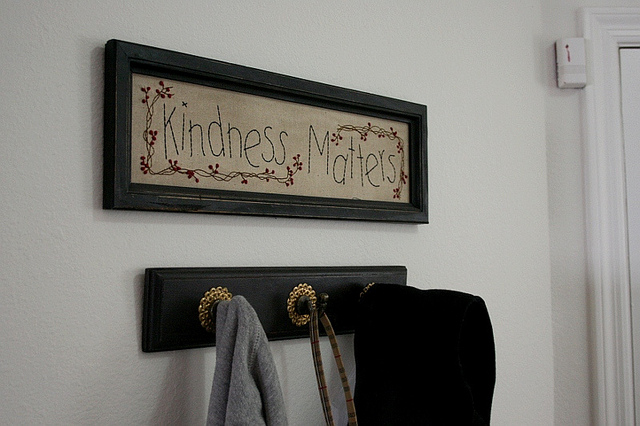
In recent years there has been a growing awareness of the importance of self-compassion in good mental health, and we need to thank Dr Kristin Neff (PhD, researcher and therapist) for her pioneering work in this area.
But what does self-compassion mean?
Self-compassion does not mean becoming self-indulgent and having a pity party. Nor does it mean focusing exclusively on yourself at the expense of others around you.
Self-compassion means being compassionate towards yourself, in the same way you would be compassionate towards another person.
But it is not as simple as it sounds.
Firstly, the act of compassion is quite complex. Before you can feel compassion for someone else you need to notice they are in pain or they are suffering. You need the head space and willingness to notice.
Then you need to respond to that awareness with an emotional reaction that drives you to act. You need to let yourself genuinely feel for the other person.
Then you need to find a way to act and show compassion in a way that is actually felt as compassion by the other person. That is, the other person feels your genuine care and kindness, free of value judgements about the situation they are in.
SO now imagine going through all of those steps with yourself when you are feeling low, you have failed, made a mistake or you are overwhelmed or grieving. Pretty tricky huh?
For those of us who have a harsh internal critic always sitting up there in our mind telling us all that we have done wrong and all the areas of life in which we have failed, creating the mental space for another, more compassionate voice is difficult.
Equally, for those of us who block or avoid hard feelings altogether, finding a self-compassionate way to respond is difficult because you actually have to acknowledge the pain first.
And for those who are in the dark hole of depression or overwhelmed with anxiety, changing the way you respond to yourself can feel scary and strange.
But it’s very worthwhile. Because being self-compassionate allows us to experience life and ourselves is an open, non-judging way.
Kristen Neff says that self-compassion is made up of three parts:
1) Self-kindness
Self-compassion involves kindly allowing ourselves to be imperfect and to fail at times, and to be warm and understanding of ourselves when we feel inadequate. Rather than beating ourselves up or feeling angry when life doesn’t meet our expectations.
People who are kind to themselves notice that some problems in life are inevitable or out of their control, so they are more gentle with themselves when confronted with painful experiences.
2) Common humanity
Self-compassion involves noticing that painful experiences and feelings of inadequacy, sadness and frustration are part of a shared human experience. All humans suffer and this understanding can help reduce the sense that hard things just happen to ‘me’, or that feeling of being ‘alone’ in the experience.
3) Mindfulness
Self-compassion is helped along by mindfulness – the willingness and ability to notice painful thoughts and emotions with openness and non-judgement. Being mindful involves observing thoughts and feelings just for what they are, rather than trying to avoid, suppress, deny or struggle against them.
We cannot ignore our pain and feel compassion for it at the same time. Similarly, we cannot respond kindly to ourselves if we are tangled in our thoughts and feelings and caught up on a runaway train of negative reactivity.
My colleague wrote a blog about mindfulness recently, which I encourage you to look at for more information about mindfulness and it’s benefits:
Mindfulness
So, I think self-compassion is the key to coping with anxiety, depression and life’s challenges in general.
I encourage you to start practicing it now… Although remember, be kind to yourself if you can’t just yet!
Subscribe to our newsletter Attuned Life
Would you be interested in receiving our occasional newsletter, event information and other useful tips via e-mail?

